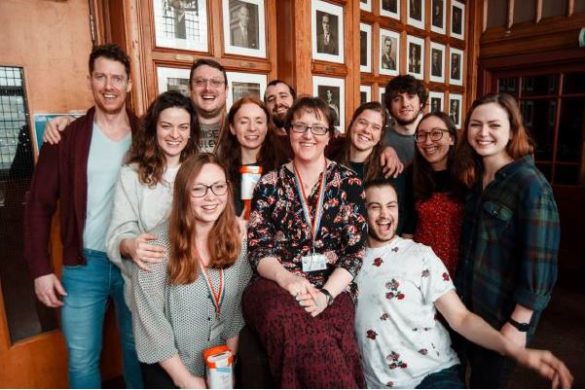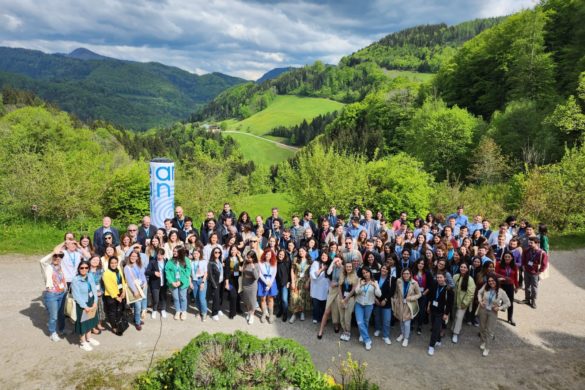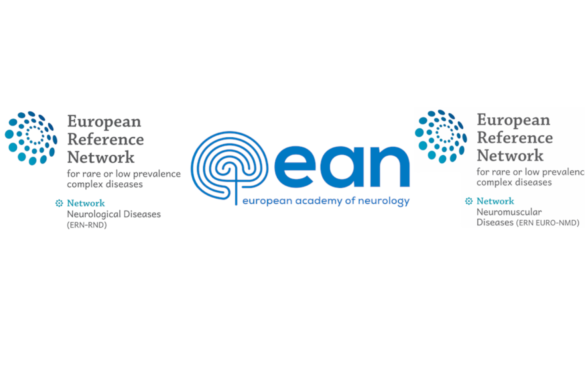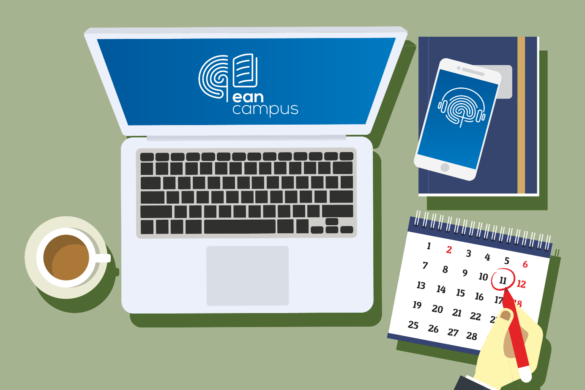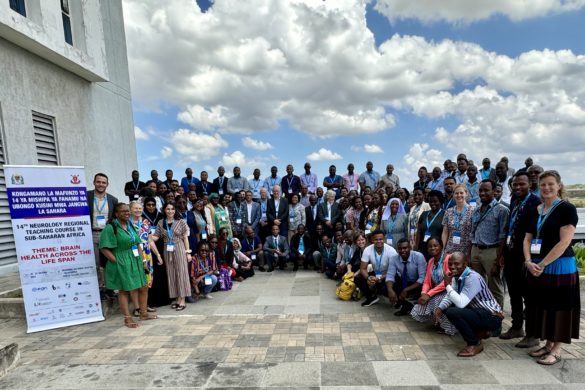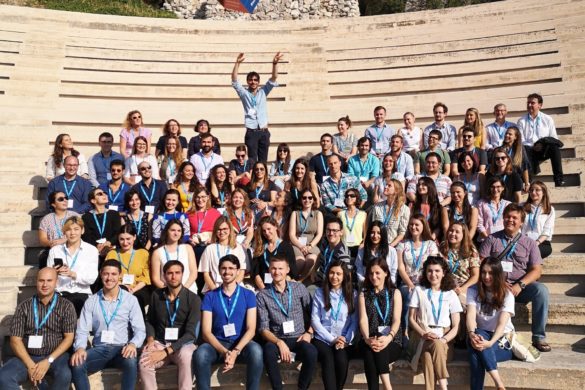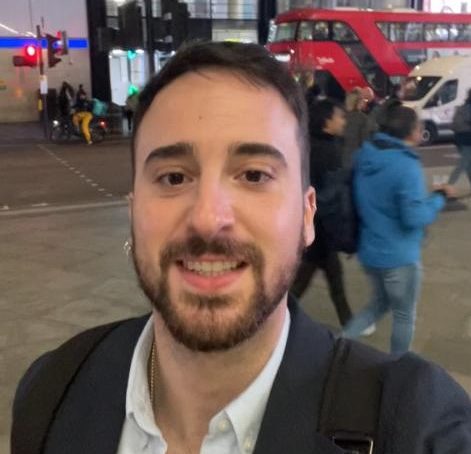
Alejandro Fuerte Hortigón, Mérida, España
Term of Fellowship: 9 September – 28 November 2022
Hosting department: Department of Neurology, Atkinson Morley Wing, St George’s Hospital, London, UK
Supervisor: Dr. Anthony Pereira
…
I had the pleasure of spending 11 weeks on an EAN Clinical Fellowship at St George’s with Dr Pereira’s department. During this time, I had the opportunity to participate in the Hyper Acute Stroke Unit (HASU) work, where I observed the management of patients with professionals such as Dr Usman Khan and Dr Brian Clarke; and in the outpatient clinic, joining Dr Pereira.
Every morning, after the shift handover meeting involving consultants, residents and the nursing team, neuroimaging was analysed and then patients were assessed. Discussions with consultants and residents helped me gain new perspectives on complex neurological conditions. In addition to clinical activity, a clinical research team joined the ward to enrol patients in different clinical trials. In the afternoons with Dr Pereira, I attended the stroke clinic, where complex patients with vascular pathology were seen. Observing Dr Pereira’s diagnostic process was one of the most instructive experiences. I also attended multidisciplinary carotid, neuroimaging and aneurysm committee meetings, a fibrinolysis course organised by Dr Valerie Jones and a neurovascular imaging course.
In terms of knowledge acquired, I can say that I have significantly increased my knowledge in vascular neurology; imaging assessment, comorbidities, reperfusion management and hospital and post-hospital management, including knowledge of in-hospital clinical trials. I would like to highlight the learning of the new stroke guidelines from a practical point of view. This training has allowed me to obtain a new stay in a London hospital in the coming months, as well as an international fellowship in vascular neurology.
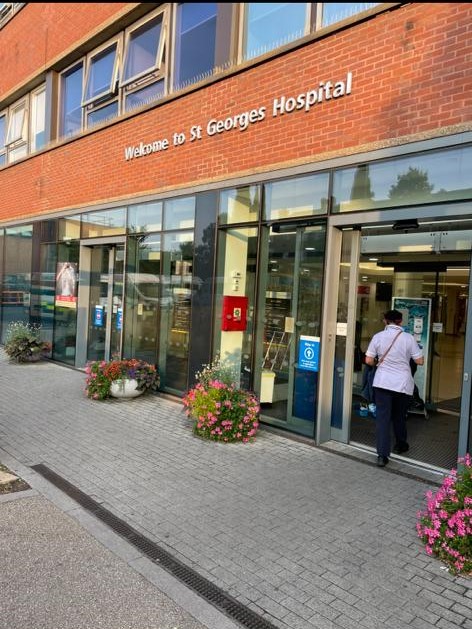
Dr Pereira’s team is not only very professional but also very helpful and friendly. I have felt very comfortable and accepted, for which I am very grateful to the HASU team, especially the residents and Dr Pereira in particular. Of course, none of this would have been possible thanks to the EAN; there is no doubt of the value they bring to the training of those of us who will be the future of neurology in Europe.
In short, my clinical fellowship has exceeded my expectations.
Andreea Raluca Hanganu, Bucharest, Romania
Term of Fellowship: 3 October – 16 December 2022
Hosting department: Clinques Universitaires St Luc, Brussels, Belgium
Supervisor: Prof. Vincent Van Pesch
On my EAN Clinical Fellowship at the Neurology Clinic at Cliniques Universitaires St Luc I was involved in the activities of the clinic, especially in the neuroimmunology and multiple sclerosis department. My activities were varied, as I was able to observe and learn, but also practice the things I was learning by having hands-on activity with patients.
My main activity was caring for patients with multiple sclerosis. I attended consultations with my mentor, Prof. Vincent Van Pesch. That’s where I got to observe how he approaches the patients, the bedside manners, but also the choice of treatment and the whole process involved – putting the patient at the centre of the medical act by letting them choose between different types of formulations according to the preferences and lifestyle, rather than forcing a certain type of treatment, of course by keeping in mind the proper class of treatment for the disease aggressiveness. Equally, I got to see the approach of patients that need to switch the treatment due to ineffectiveness or intolerance of some formulations. I also got to observe how he approaches and treats different symptoms of multiple sclerosis like neuropathic pain, depression, anxiety, fatiguability.
Another important aspect I got to learn is the approach of patients with primary progressive and secondary progressive forms of multiple sclerosis – reassuring the patient and also giving the option of participating in clinical trials that are taking place in the hospital.
A very instructive aspect of attending the consultations with Prof. Van Pesch was represented by the fact that we got to talk about the patients, explaining his choices and also answering my questions should I have any unclarities.
I also attended the daily hospital where patients with multiple sclerosis come to receive their in-hospital treatments: Tysabri IV and SC, Ocrevus, Lemtrada. I got to clinically evaluate the patients, coordinate their premedication protocols for Ocrevus and Lemtrada, do the subcutaneous Tysabri, write prescriptions for symptoms related to multiple sclerosis and treat different side effects of the treatment. Also, the daily hospital cares for patients that come for their regular treatment with other types of diseases such as chronic inflammatory demyelinating polyneuropathy, myasthenia gravis, muscular diseases so I examined, treated and managed other types of pathology too, which is of great importance especially given the fact that in Romania some treatments aren’t available at the moment.
I participated in the weekly neurology staff meeting where difficult cases are discussed and everybody gets to share their ideas regarding diagnosis and treatment approach. At this meeting registrars also present clinical cases – patients with more rare diseases, the diagnostic process, differential diagnosis, whole approach of the case, followed by the theoretical presentation of the disease in case. Sometimes, at the weekly meetings there are guests from other medical specialties or even different universities that come and present proposition for joint research projects or clinical collaboration to the benefit of the patients.
Furthermore, together with Prof. Van Pesch we started working on a scientific article describing a cohort of patients treated with alemtuzumab in the Neurology Department of Saint Luc University Clinic that soon will be submitted. It has been very instructive to write a scientific manuscript under Prof. Van Pesch’s guidance and I had the opportunity to further improve my writing technique.
As stated at the beginning of the description, I have been a fellow for 10 weeks in the Neuroimmunology Department and I consider these weeks to have been very useful for my future career should I get the opportunity to implement some of the things I learned back in Romania. I think I will be able to make a great difference in the health care system back home, especially in the management of multiple sclerosis patients, considering the fact that neurological subspecialties aren’t common, and many multiple sclerosis patients are treated by general neurologists. Having the opportunity to observe, besides the scientific approach, the management and administrative organisation is an important step in further developing the multiple sclerosis treatment programme.




